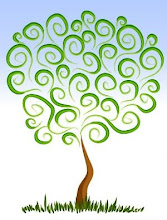Friday, May 29, 2009
What Dreams May Come
This is a very odd movie, enough said. Its worldview is Cosmic Humanist. This is seen in the idea of truth/reality, Heaven/Hell, reincarnation, sin, and God. Truth/reality: the movie expresses that what you think in your head is what is real. Chris tells his wife that if you believe something, than it is truth. Also they create their own realitys and identity with their imagination. Heaven/Hell: there is a so-called happy place... lets call it "heaven". There is also a place where you feel bad beacause you don't know your dead, but there is no punishment or judgment inflicted on you... lets call this place "hell". That is what I think this movie potrays. There is no judgment. Your mind takes you where you want to go. Reincarnation: People in the movie can choose to be reborn and Chris and Annie choose to go back to earth to retry their lives. Sin: Their is no definite sin in the movie. Although, suicide is looked down upon because it disrupts the natural order. It is not punished, however. It only keeps your mind from accepting death. God: Albert/Chris's son phrases the movie's potrayal of God best. There's a God up there. He's wondering why we don't get it and he's trying to tell us he loves us. This maks God seem like a force that is all loving rather than a person who is loving but also judges.
Camelot Worldview
I did not see most of this movie. I only saw the end. So this could very well be a bad review. Camelot potrays a Christian worldview in that it affirms a supernatural, absolute morals, and forgiveness. The supernatural is seen in Merlin. The absolute morals is the situation of Lancelot and Gwenivere. Everyone involved recognized that they were wrong even the couple themselves. Also forgiess is shown in Arthur as he forgives Jenny and Lance even though they betrayed him. Arthur is also a Christ figure through his forgiveness, him choosing love over law when Jenny is being punished, and the sort of Great Commision when he knights the young boy and tells him to spread the story about the round table.
Planet of the Apes Worldview
I want to start off by saying that "Planet of the Apes" is a SUPER RAD movie! I loved it. I love how it flipped everything, even the tiniest details like sayings. It potrays a secular humanist worldview because it relies heavily on the theory of evolution. It also seems to mack the idea of a higher power with laws in the form of "The Great Ape" and "Lawgiver". In the movei, the religous laws were really given to cover up the scientific truth. The movie also raises up the human fighting spirit and intelligence. Taylor is smart and can beat his surrounding. He can rise above. In the movie, human ruining the planet and society is the "sin" and the redemption is the adapting to the environment to avoid going exstinct.
Sunday, May 17, 2009
Stanger Than Fiction Review
I really liked this movie. I think my favorite thing about it was the fact that the watch was a character. The worldview of this movie is Postmodern. At first I was confused because Harold Crick's life was being mapped out with a very definite end and I did not think this was very postmodern. However, I think the ending was. No matter how much the ending was fated, it could be (and in this case, was) rewritten. Not only was the ending changed, but Kay decided to rewrite the whole story in the end. The story and Harold's life are easily changed and manipulated. The movie also poses the question, are we in control of our lives or are we merely scripted? It is similar to the conflict Rosencrantz and Guildenstern faced when stuck in Hamlet.
Subscribe to:
Comments (Atom)
